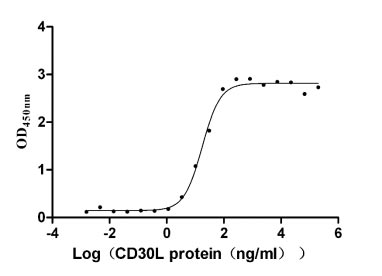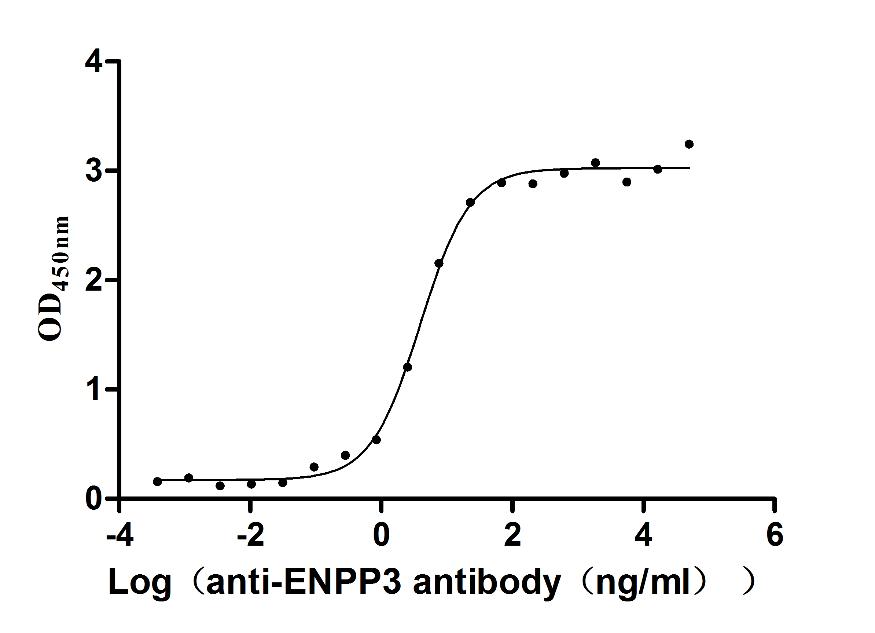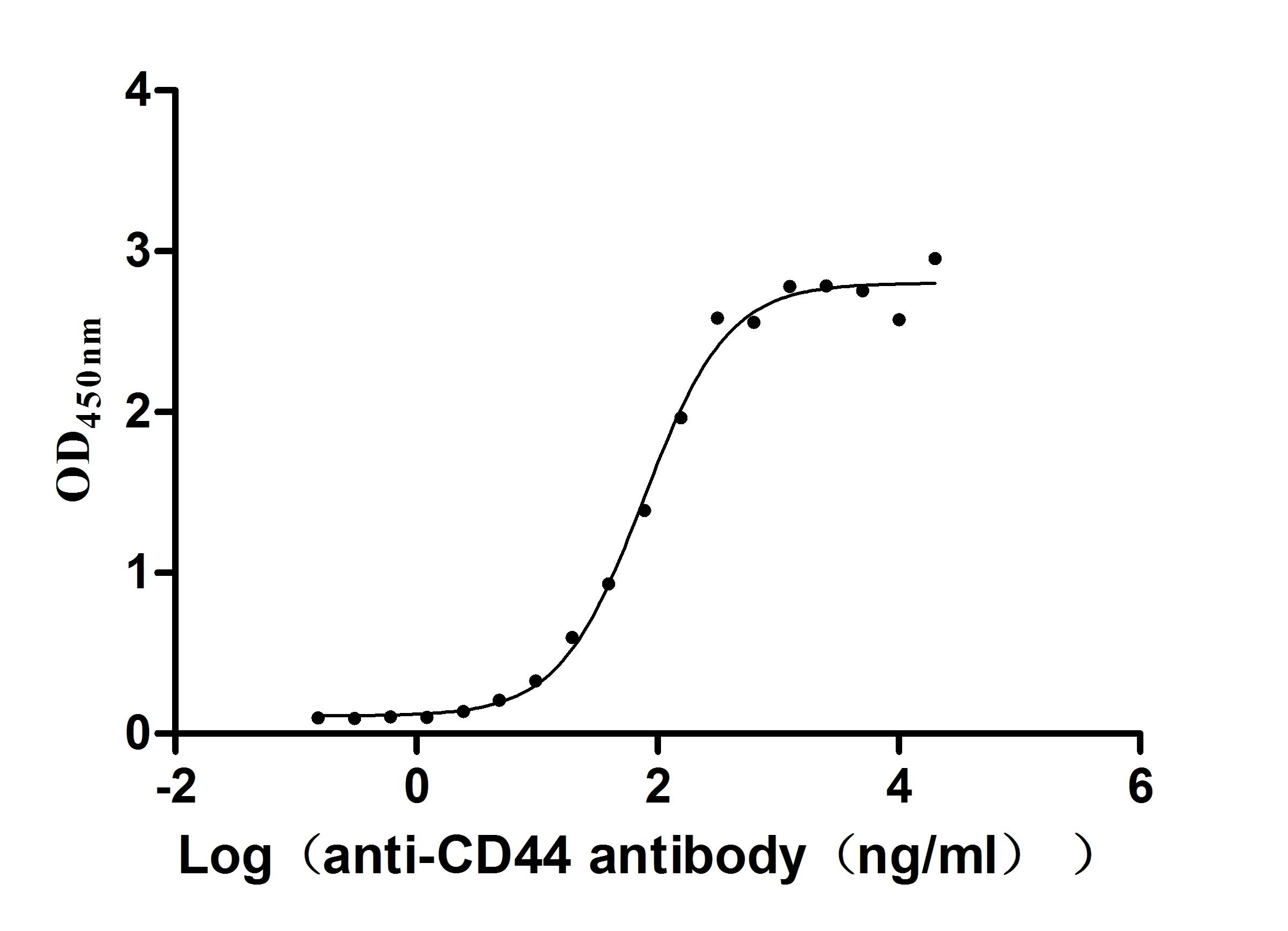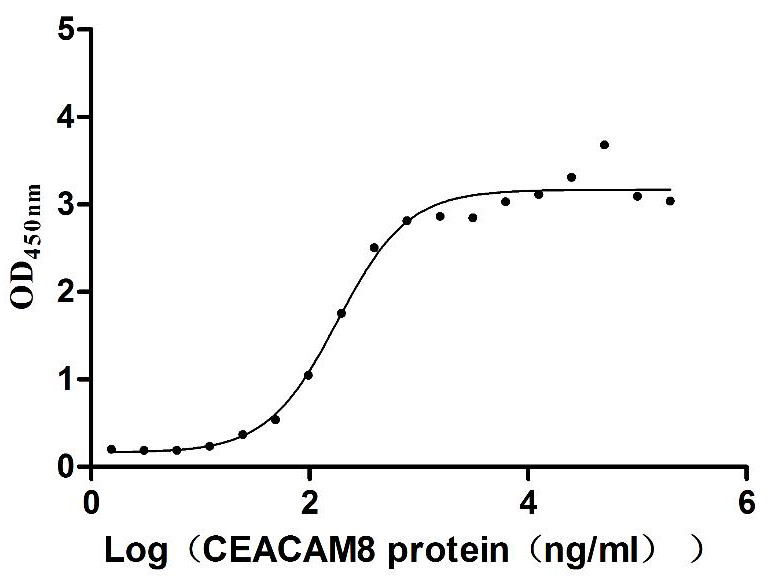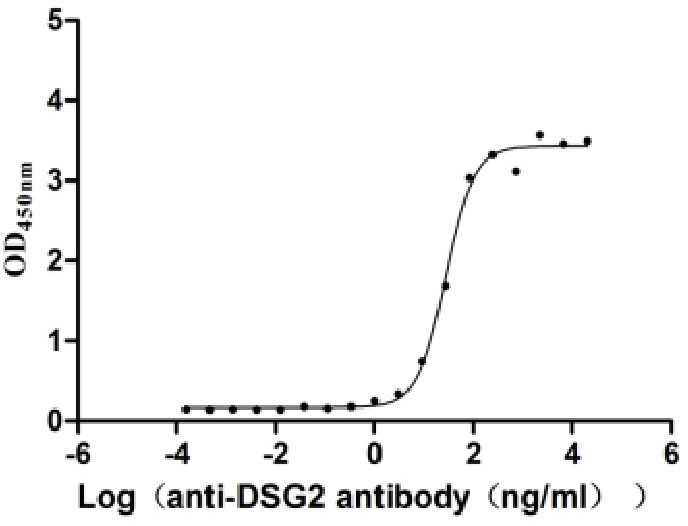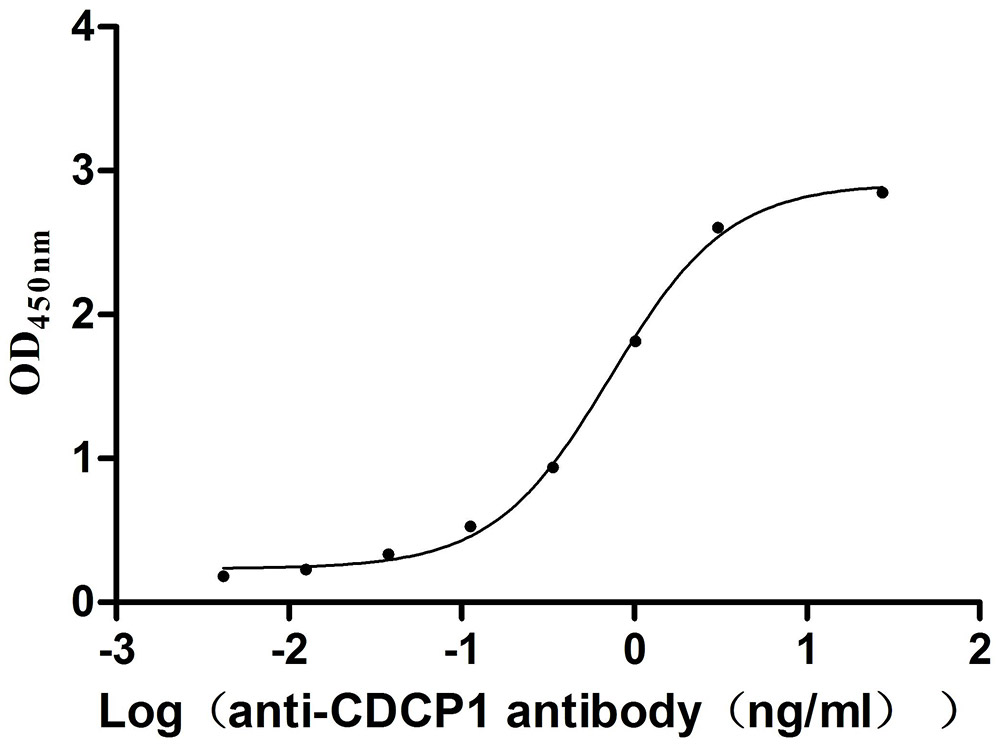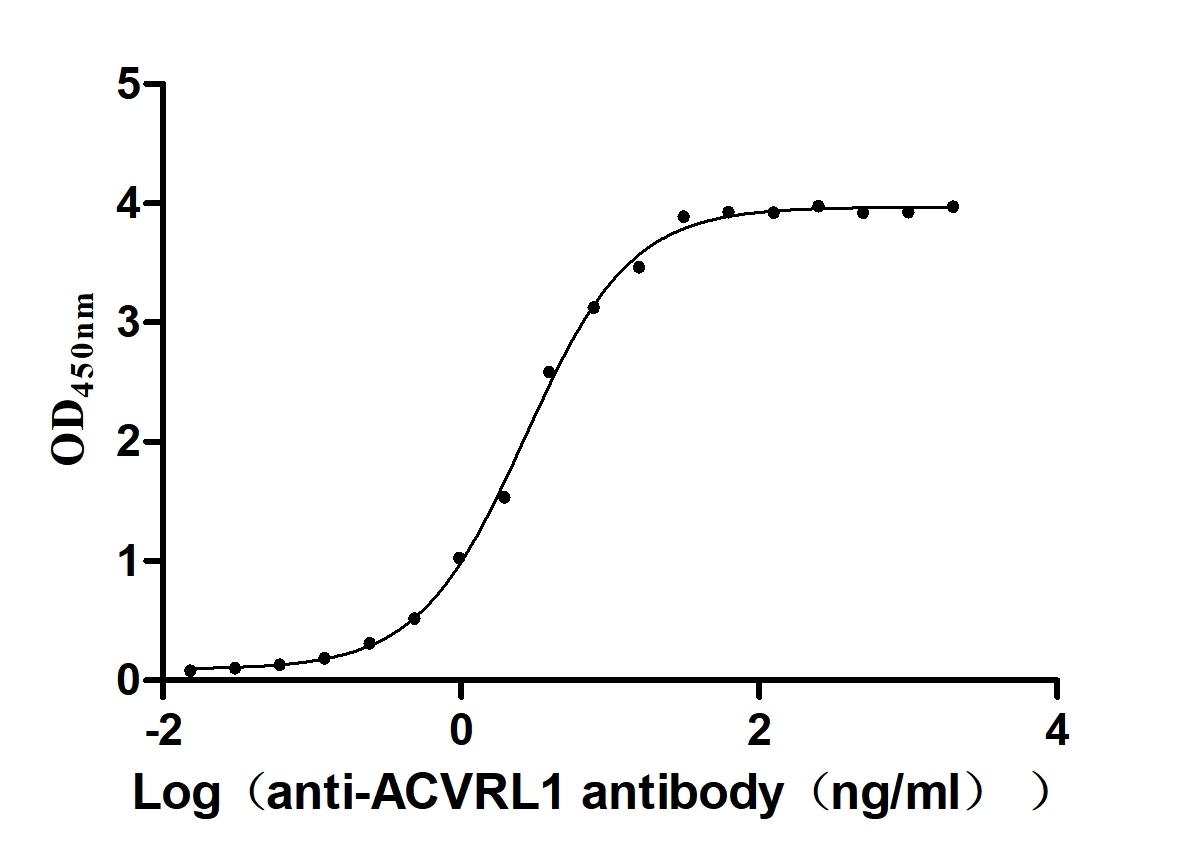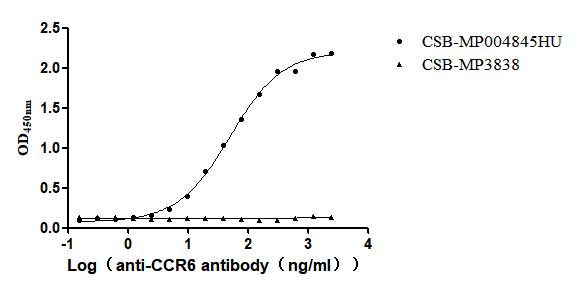Recombinant Drosophila melanogaster Mitogen-activated protein kinase kinase kinase 7 (Tak1), partial
-
中文名称:黑腹果蝇Tak1重组蛋白
-
货号:CSB-YP013429DLU
-
规格:
-
来源:Yeast
-
其他:
-
中文名称:黑腹果蝇Tak1重组蛋白
-
货号:CSB-EP013429DLU
-
规格:
-
来源:E.coli
-
其他:
-
中文名称:黑腹果蝇Tak1重组蛋白
-
货号:CSB-EP013429DLU-B
-
规格:
-
来源:E.coli
-
共轭:Avi-tag Biotinylated
E. coli biotin ligase (BirA) is highly specific in covalently attaching biotin to the 15 amino acid AviTag peptide. This recombinant protein was biotinylated in vivo by AviTag-BirA technology, which method is BriA catalyzes amide linkage between the biotin and the specific lysine of the AviTag.
-
其他:
-
中文名称:黑腹果蝇Tak1重组蛋白
-
货号:CSB-BP013429DLU
-
规格:
-
来源:Baculovirus
-
其他:
-
中文名称:黑腹果蝇Tak1重组蛋白
-
货号:CSB-MP013429DLU
-
规格:
-
来源:Mammalian cell
-
其他:
产品详情
-
纯度:>85% (SDS-PAGE)
-
基因名:Tak1
-
Uniprot No.:
-
别名:Tak1; CG18492Mitogen-activated protein kinase kinase kinase 7; EC 2.7.11.25; TGF-beta-activated kinase 1; dTAK1
-
种属:Drosophila melanogaster (Fruit fly)
-
蛋白长度:Partial
-
蛋白标签:Tag type will be determined during the manufacturing process.
The tag type will be determined during production process. If you have specified tag type, please tell us and we will develop the specified tag preferentially. -
产品提供形式:Lyophilized powder
Note: We will preferentially ship the format that we have in stock, however, if you have any special requirement for the format, please remark your requirement when placing the order, we will prepare according to your demand. -
复溶:We recommend that this vial be briefly centrifuged prior to opening to bring the contents to the bottom. Please reconstitute protein in deionized sterile water to a concentration of 0.1-1.0 mg/mL.We recommend to add 5-50% of glycerol (final concentration) and aliquot for long-term storage at -20℃/-80℃. Our default final concentration of glycerol is 50%. Customers could use it as reference.
-
储存条件:Store at -20°C/-80°C upon receipt, aliquoting is necessary for mutiple use. Avoid repeated freeze-thaw cycles.
-
保质期:The shelf life is related to many factors, storage state, buffer ingredients, storage temperature and the stability of the protein itself.
Generally, the shelf life of liquid form is 6 months at -20°C/-80°C. The shelf life of lyophilized form is 12 months at -20°C/-80°C. -
货期:Delivery time may differ from different purchasing way or location, please kindly consult your local distributors for specific delivery time.Note: All of our proteins are default shipped with normal blue ice packs, if you request to ship with dry ice, please communicate with us in advance and extra fees will be charged.
-
注意事项:Repeated freezing and thawing is not recommended. Store working aliquots at 4°C for up to one week.
-
Datasheet :Please contact us to get it.
靶点详情
-
功能:Component of a protein kinase signal transduction cascade. Mediator of TGF-beta signal transduction. Responsible for activation of the JNK MAPK pathway (basket, bsk and hemipterous, hep) in response to LPS. Component of the NF-kappa-B pathway; relish-mediated JNK inhibition involves proteasomal degradation of Tak1; certain targets of Relish that are induced during immune responses may facilitate destruction of Tak1 and switch off the JNK cascade. Participates in diverse roles such as control of cell shape and regulation of apoptosis.
-
基因功能参考文献:
- Imd is rapidly Lys-63-polyubiquitinated at lysine residues 137 and 153 by the sequential action of two E2 enzymes, Ubc5 and Ubc13-Uev1a, in conjunction with the E3 ligase Diap2. Lys-63-ubiquitination activates the TGFbeta-activated kinase (Tak1), which feeds back to phosphorylate Imd, triggering the removal of Lys-63 chains and the addition of Lys-48 polyubiquitin. PMID: 28377500
- Tak1 is dispensable in the Slpr-dependent process of dorsal closure; it does not induce or inhibit morphogenetic JNK signaling. PMID: 24429281
- The TAK1-associated Binding Protein 2 (TAB2) was linked with the TAK1-Trabid interaction through its Zinc finger domain that pacified the TAK1 signal PMID: 24586180
- When treated with autophagy inhibitors, the level of TAK1-induced cytotoxicity or cell death was significantly attenuated, indicating that TAK1 induces cytotoxic autophagic cell death. PMID: 23532117
- evidence that TAK1 is a target for YopJ-mediated inhibition. PMID: 22802624
- that dpp induced non-autonomous apoptosis through TGFbeta activated kinase 1 (TAK1) PMID: 22114909
- specific stimuli use different mechanisms to recruit distinct MAP3Ks to regulate the JNK pathway PMID: 12351623
- TAK1 functions as both the Drosophila IkappaB kinase-activating kinase and the JNK kinase-activating kinase PMID: 14519762
- Relish limits the duration of JNK activation in response to Gram-negative infections by degradation of TAK1, leading to rapid termination of JNK signaling, resulting in a transient JNK-dependent response that precedes sustained induction of immune loci. PMID: 15037551
- dTAK1 is not required for Relish activation, but instead is required in JNK signaling for antimicrobial peptide gene expression. PMID: 16763552
显示更多
收起更多
-
蛋白家族:Protein kinase superfamily, STE Ser/Thr protein kinase family, MAP kinase kinase kinase subfamily
-
数据库链接:
Most popular with customers
-
Recombinant Human Tumor necrosis factor receptor superfamily member 8 (TNFRSF8), partial (Active)
Express system: Mammalian cell
Species: Homo sapiens (Human)
-
Express system: Mammalian cell
Species: Macaca fascicularis (Crab-eating macaque) (Cynomolgus monkey)
-
Recombinant Macaca fascicularis CD44 antigen (CD44), partial (Active)
Express system: Mammalian cell
Species: Macaca fascicularis (Crab-eating macaque) (Cynomolgus monkey)
-
Recombinant Human Carcinoembryonic antigen-related cell adhesion molecule 6 (CEACAM6) (Active)
Express system: Mammalian cell
Species: Homo sapiens (Human)
-
Recombinant Human Desmoglein-2 (DSG2), partial (Active)
Express system: Mammalian cell
Species: Homo sapiens (Human)
-
Recombinant Mouse CUB domain-containing protein 1 (Cdcp1), partial (Active)
Express system: Mammalian cell
Species: Mus musculus (Mouse)
-
Recombinant Human Serine/threonine-protein kinase receptor R3 (ACVRL1), partial (Active)
Express system: Baculovirus
Species: Homo sapiens (Human)
-
Recombinant Human C-C chemokine receptor type 6(CCR6)-VLPs (Active)
Express system: Mammalian cell
Species: Homo sapiens (Human)


